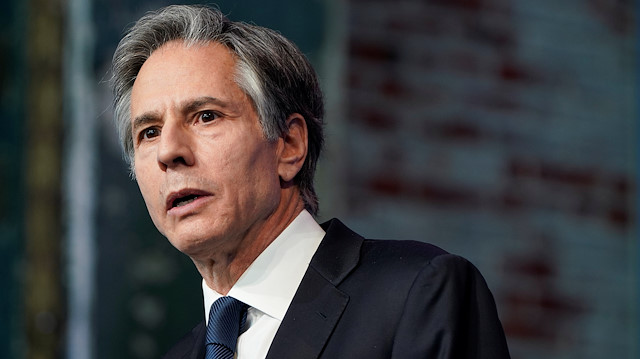
The United States remains committed to ensuring that Iran never acquires a nuclear weapon and is prepared to engage in diplomacy with Tehran, the US secretary of state said Monday.
"Diplomacy is the best path to achieve that goal. President [Joe] Biden has said: if Iran comes back into strict compliance with the JCPOA (Joint Comprehensive Plan of Action), the United States is prepared to do the same," said Anthony Blinken.
Blinken addressed the High-Level Segment of the Conference on Disarmament in Geneva, saying virtually the body has a responsibility to create new tools to manage 21st-century threats and protect what the world has built.
"Working with allies and partners, we will also seek to lengthen and strengthen the JCPOA and address other areas of concern, including Iran's destabilizing regional behavior and ballistic missile development and proliferation," he said.
Also, Iran must comply with its safeguards agreements with the International Atomic Energy Agency (IAEA) and its international obligations.
Blinken said Washington is ready to engage Russia in stability discussions on arms control and emerging security issues.
The top diplomat noted that two weeks after Biden took office as president on Jan. 6, the US and the Russian Federation extended the New START (Strategic Arms Reduction Treaty) for five years.
"That decision made our countries and the world safer, and it was only the beginning of our efforts to address nuclear threats," said Blinken.
"We will be clear-eyed about the broader challenges posed by Russia and how our respective nuclear arsenals represent existential threats to each other," said the secretary of state.
At the same time, the US wishes to demand greater transparency regarding China's "provocative and dangerous weapons."
"Working with our allies and partners, the United States will also demand greater transparency regarding China's provocative and dangerous weapons development programs and continue efforts aimed at reducing the dangers posed by their nuclear arsenal," he said.
Further said Blinken, the US wants to engage all countries, including Russia and China, on "developing standards and norms of responsible behavior in outer space."
The Conference on Disarmament had already held discussions on space security, and he said it is "uniquely positioned" to help lead.
Blinked urged states developing anti-satellite weapons to refrain from dangerous testing of them.
"For example, contrary to Russia's diplomatic and public stance against the weaponization of space, Russia conducted a ground-based anti-satellite test in December 2020.
"We should be reducing tensions in outer space, not making them worse," he added.


















